The Indonesian government has officially extended its moratorium [English translation] on new logging and plantation concessions in 65 million hectares of forests and peatlands for another two years. The move, which had been expected, was announced Wednesday by Indonesian President Susilo Bambang Yudhoyono.
The moratorium is the centerpiece of the Indonesian government’s push to reduce greenhouse gas emissions, the vast majority of which result from deforestation and degradation of carbon-dense peatlands. The moratorium was signed after Norway pledged a billion dollars toward Indonesia’s deforestation-reduction plan. Norway’s largesse is contingent on Indonesia’s success in reducing forest loss.

The moratorium, which put some 14.5 million hectares of previously unprotected forests off-limits to conversion, was fiercely opposed by interests in the forestry sector, especially Indonesia’s powerful palm oil industry. Lobbying by plantation and logging companies led to the moratorium being heavily watered down from what was originally envisioned by Norway. The moratorium includes significant carve-outs for mining and agroindustrial projects. It also exempts concessions granted prior to May 2011, when the moratorium went into effect.
Nonetheless, the moratorium represents an important development in efforts to protect Indonesia’s forests which have in recent decades suffered from large-scale conversion for oil palm estates, timber plantations, and industrial agriculture. The country lost nearly half of its forest cover since 1950.
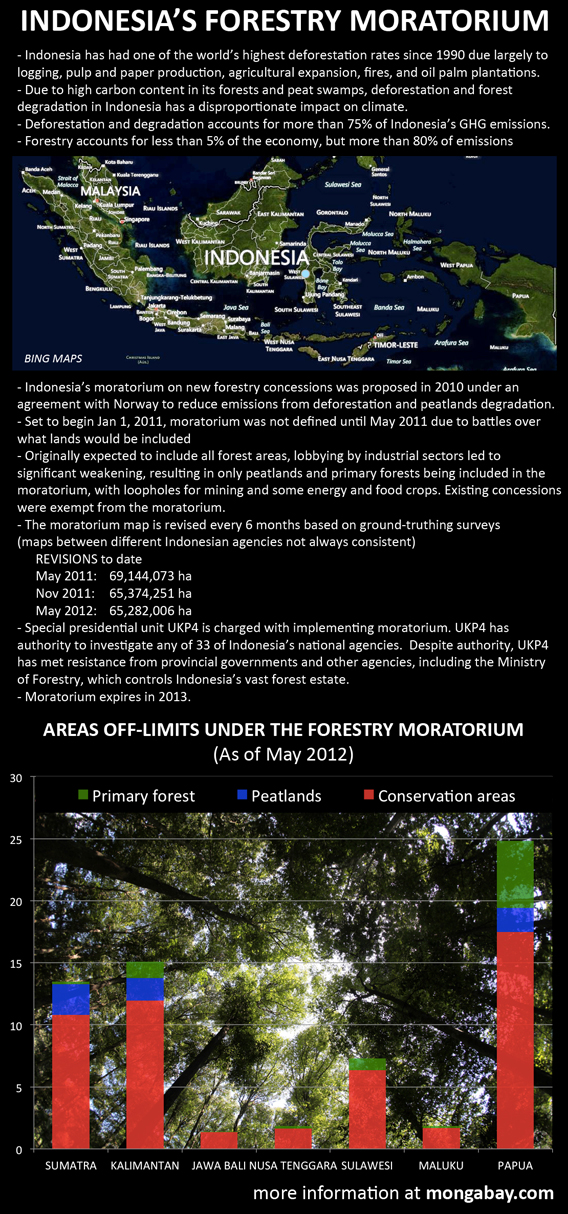
Chart: Indonesia’s forest moratorium. Background satellite image courtesy of Microsoft Bing Maps, design by mongabay.com. Click image to enlarge.
The moratorium aims to create a window for enacting reforms needed to improve governance in the forestry sector, which is racked by corruption, mismanagement, and overlapping and conflicting jurisdictions. To facilitate reform, President Yudhoyono is pushing for the establishment of a REDD+ agency that will have broad powers over various ministries involved in forest management. The agency was supposed to launch last year, but has been delayed by bureaucratic battles.


Related articles
Forestry official: Indonesia should extend moratorium on new forest concessions
(01/15/2013) Despite opposition from the powerful palm oil industry, Indonesia should extend its two-year moratorium on new logging and agricultural concessions in carbon-dense peatlands and forests, said a top forestry official.
Indonesia lost 8.8m ha of forest in the 2000s, generating 7 billion tons of CO2
(12/02/2012) Indonesia’s greenhouse gas emissions from deforestation could have been reduced by hundreds of millions of tons had a moratorium on new concessions in high carbon forest areas and peatlands been implemented earlier, reported a researcher presenting at a forests conference on the sideline of climate talks in Doha.
Forestry Minister: Indonesia should extend forest moratorium
(11/23/2012) Indonesia should extend its two-year moratorium on new concessions in some 64.8 million hectares of forests and peatlands until its next presidential election in 2014, said the country’s top forest official.
Chart: Indonesia’s forest moratorium
(07/22/2012) Indonesia’s moratorium on new forestry concessions was proposed in 2010 under an agreement with Norway to reduce emissions from deforestation and peatlands degradation. Set to begin Jan 1, 2011, the moratorium was not defined until May 2011 due to battles over what lands would be included. The moratorium was originally expected to include all forest areas, but lobbying by industrial sectors led to significant weakening, resulting in only peatlands and primary forests being included in the moratorium, with loopholes for mining and some energy and food crops.
Norway: Indonesia’s forest moratorium isn’t enough to meet emissions reduction target
(05/23/2012) Indonesia’s moratorium on new forest concessions will not be enough to meet its 2020 emissions reduction target says the largest backer of the country’s forest and climate action plan.
Indonesia revises moratorium map; makes contested orangutan forest off-limits
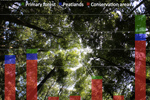
(05/22/2012) Indonesia is making ‘encouraging’ progress on its push to reduce deforestation by improving governance over its forests and peatlands, but still needs to do more to enforce environmental laws, said the head of the country’s Reducing Emissions from Deforestation and Degradation (REDD+) task force speaking at a press conference Monday in Jakarta. Kuntoro Mangkusubroto, Head of the Indonesian President’s Delivery Unit for Development Monitoring and Oversight (UKP4) and Chair of the REDD+ Task Force, said an effort to develop a map of Indonesia’s forests and forest concessions has been completed, although the Ministry of Forestry has yet to deliver the map to President Susilo Bambang Yudhoyono, missing last Friday’s deadline. The map serves as the basis for a two-year moratorium on new forestry concessions in primary forests and peatlands had been completed.
(02/27/2012) Indonesia’s moratorium on new forest concessions alone “does not significantly contribute” to its goal of reducing greenhouse gas emissions 26 percent from a projected 2020 baseline, concludes a new analysis by the World Resources Institute (WRI). However the study says the moratorium does support the target in the long-term by creating a window for enacting governance reform needed to stop destructive business-as-usual approaches to forest management.
Indonesia could earn billions from well-designed deforestation-reduction program, finds study
(01/12/2012) Indonesia could have earned $5 billion in revenue and avoided 1 billion tons of carbon dioxide emissions between 2000 and 2005 had a reducing emissions from deforestation and degradation (REDD+) program been in place, reports an assessment published in the journal Proceedings of the National Academy of Science.
Is the Ministry of Forestry undermining Indonesia’s logging moratorium?
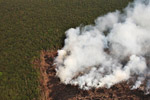
(06/28/2011) Indonesia’s Ministry of Forestry is already undermining the moratorium on new forestry concessions on peatlands and in primary forest areas, alleges a new report from Greenomics-Indonesia. The report, The Toothless Moratorium, claims that a new decree from the Ministry of Forestry converts 81,490 hectares of forest protected under the moratorium into logging areas. The area affected is larger than Singapore.
Is Indonesia losing its most valuable assets?

(05/16/2011) Deep in the rainforests of Malaysian Borneo in the late 1980s, researchers made an incredible discovery: the bark of a species of peat swamp tree yielded an extract with potent anti-HIV activity. An anti-HIV drug made from the compound is now nearing clinical trials. It could be worth hundreds of millions of dollars a year and help improve the lives of millions of people. This story is significant for Indonesia because its forests house a similar species. In fact, Indonesia’s forests probably contain many other potentially valuable species, although our understanding of these is poor. Given Indonesia’s biological richness — Indonesia has the highest number of plant and animal species of any country on the planet — shouldn’t policymakers and businesses be giving priority to protecting and understanding rainforests, peatlands, mountains, coral reefs, and mangrove ecosystems, rather than destroying them for commodities?
Will Indonesia’s big REDD rainforest deal work?
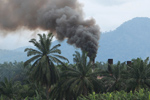
(12/28/2010) Flying in a plane over the Indonesian half of the island of New Guinea, rainforest stretches like a sea of green, broken only by rugged mountain ranges and winding rivers. The broccoli-like canopy shows little sign of human influence. But as you near Jayapura, the provincial capital of Papua, the tree cover becomes patchier—a sign of logging—and red scars from mining appear before giving way to the monotonous dark green of oil palm plantations and finally grasslands and urban areas. The scene is not unique to Indonesian New Guinea; it has been repeated across the world’s largest archipelago for decades, partly a consequence of agricultural expansion by small farmers, but increasingly a product of extractive industries, especially the logging, plantation, and mining sectors. Papua, in fact, is Indonesia’s last frontier and therefore represents two diverging options for the country’s development path: continued deforestation and degradation of forests under a business-as-usual approach or a shift toward a fundamentally different and unproven model based on greater transparency and careful stewardship of its forest resources.
Indonesia’s plan to save its rainforests

(06/14/2010) Late last year Indonesia made global headlines with a bold pledge to reduce deforestation, which claimed nearly 28 million hectares (108,000 square miles) of forest between 1990 and 2005 and is the source of about 80 percent of the country’s greenhouse gas emissions. President Susilo Bambang Yudhoyono said Indonesia would voluntarily cut emissions 26 percent — and up to 41 percent with sufficient international support — from a projected baseline by 2020. Last month, Indonesia began to finally detail its plan, which includes a two-year moratorium on new forestry concession on rainforest lands and peat swamps and will be supported over the next five years by a one billion dollar contribution by Norway, under the Scandinavian nation’s International Climate and Forests Initiative. In an interview with mongabay.com, Agus Purnomo and Yani Saloh of Indonesia’s National Climate Change Council to the President discussed the new forest program and Norway’s billion dollar commitment.
Indonesia’s moratorium undermines community forestry in favor of industrial interests
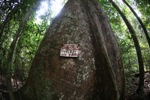
(06/21/2011) Indonesia’s moratorium on new concessions in primary forest areas and peatlands “completely ignores” the existence of community forestry management licenses, jeopardizing efforts to improve the sustainability of Indonesia’s forest sector and ensure benefits from forest use reach local people, say environmentalists. According to Greenomics-Indonesia, a Jakarta-based NGO, community and village forestry licenses are not among the many exemptions spelled under the presidential instruction that defines the moratorium. The instruction, issued last month, grants exemptions for industrial developers and allows business-as-usual in secondary forest areas by the pulp and paper, mining and palm oil industries.
(06/17/2011) World Resource Institute’s summary of key elements, and unanswered questions, in Indonesia’s recent moratorium on new forest permits.
Interview with Indonesian climate official on rainforest logging moratorium
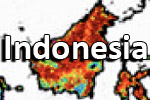
(06/03/2011) In May, Indonesia President Susilo Bambang Yudhoyono issued a presidential instruction laying out the specifications for a two-year moratorium on new concessions in primary forests and peatlands. The moratorium aims to create a window for Indonesia to enact reforms needed to slow deforestation and forest degradation under its Letter of Intent with Norway, which would pay the Southeast Asian nation up to a billion dollars for protecting forests.
Indonesia’s moratorium disappoints environmentalists

(05/20/2011) The moratorium on permits for new concessions in primary rainforests and peatlands will have a limited impact in reducing deforestation in Indonesia, say environmentalists who have reviewed the instruction released today by Indonesian President Susilo Bambang Yudhoyono. The moratorium, which took effect January 1, 2011, but had yet to be defined until today’s presidential decree, aims to slow Indonesia’s deforestation rate, which is among the highest in the world. Indonesia agreed to establish the moratorium as part of its reducing emissions from deforestation and degradation (REDD) agreement with Norway. Under the pact, Norway will provide up to a billion dollars in funds contingent on Indonesia’s success in curtailing destruction of carbon-dense forests and peatlands.
Indonesia signs moratorium on new permits for logging, palm oil concessions
(05/19/2011) After five-and-a-half months of delay due to political infighting, Indonesian President Susilo Bambang Yudhoyono finally signed a two-year moratorium on the granting of new permits to clear rainforests and peatlands, reports Reuters.
Indonesia delays logging moratorium
(01/05/2011) Bureaucratic confusion has led Indonesia to delay implementation of its two-year moratorium on new logging and plantation concessions in forest areas and peatlands, reports the Jakarta Globe.
Norway to provide Indonesia with $1 billion to protect rainforests
(05/19/2010) Norway will provide up to $1 billion to Indonesia to help reduce deforestation and forest degradation, reports The Jakarta Post.
Indonesian government report recommends moratorium on peatlands conversion
(01/19/2010) A study issued by Indonesian government recommends a moratorium on peatlands conversion in order to meet its greenhouse gas emissions target pledged for 2020, reports the Jakarta Post. The report, commissioned by the National Development Planning Agency (Bappenas), says that conversion of peatlands accounts for 50 percent of Indonesia’s greenhouse gas emissions but only one percent of GDP. A ban on conversion would therefore be a cost-effective way for the country to achieve its goal of reducing carbon emissions 26 percent from a projected baseline by 2020. But the recommendation is likely to face strong resistance from plantation developers eager to expand operations in peatland areas. Last year the Agricultural Ministry lifted a moratorium on the conversion of peatlands of less than 3 meters in depth for oil palm plantations. Environmentalists said the move would release billions of tons of carbon dioxide.